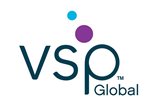 May 20, 2021 — The VSP Global Innovation Center recently released findings from a new report that identified vision as a key component in innovative technologies and startup companies slated to shape the future of eye care and eyewear.
May 20, 2021 — The VSP Global Innovation Center recently released findings from a new report that identified vision as a key component in innovative technologies and startup companies slated to shape the future of eye care and eyewear.
“The Future of Personal Performance,” created in collaboration with CB Insights, pinpointed five trends (outlined below) focusing on new opportunities for innovation as consumers increasingly seek out ways to improve physical, mental, emotional, social, and professional performance.
“Applications that were once only accessible to elite athletes or through rare medical trials are now available to everyday consumers thanks to developing technology, economies of scale, increased consumer demand, and startup investments from major brands,” says Ruth Yomtoubian, senior director of the VSP Global Innovation Center. “This report provides our team with valuable insights to consider as we work to meet the future needs of our members, clients, and network doctors.” 
For VSP’s highlights from the report, see below. To view the report in full, click here.
1. Consumers turn the dial on their quantified selves.“Performance optimization isn’t achievable without data. The good news is that consumers are increasingly adopting self-tracking practices, allowing companies to expand the breadth and depth of how performance data is collected. However, quantitative data is no longer enough. Consumer expectations are changing about how their quantified self-data should be used and presented. They’re gravitating toward solutions that not only collect data but also interpret it for them, providing actionable insights about their strengths, weaknesses, and plans for improvement.”
2. The eye becomes a tool for more than 20/20 vision.“Eyecare professionals have long known that the eyes offer a window into overall health, and the report findings show that innovators and other companies have taken notice too. Startup funding has doubled in this space since 2016 as more and more companies are using the eye-brain connection to benefit consumers in multiple ways.
Some startups are developing less invasive methods to provide early detection of diseases afflicting the brain, like Parkinson’s disease, Multiple Sclerosis, Alzheimer’s, and more; while other emerging technology is using AI-powered eye tracking as a communication tool allowing people with disabilities to live more independently. For example, ventilated patients and individuals who cannot speak, could communicate using only eye movements. The report also pointed to a UK-based painter who lives with ALS and uses technology to create art with her eyes.
Gaining a physical performance edge through eye training technology is also increasing in popularity. Innovations in this space include eyewear devices that manipulate visual stimuli to strengthen connections between the eye and other sensory systems that force the brain to fill in the gaps and anticipate movement. This sharpens and streamlines vision, in turn improving eye-hand coordination, movement, balance, and reaction time.”
3. Bio-boosting nutrition gets personal.
“Bio-boosting nutrition refers to functional foods, beverages, and ingredients—like supplements or meal plans—that offer health benefits beyond just nutritional value. Increasingly, consumers are turning to these products and services as a way to take their health and wellness into their own hands. In fact, 69% of consumers take supplements to support their immune health.”
“Eyecare professionals have been using nutraceuticals to improve patient outcomes for years, but new technology is enabling custom formulations to meet unique needs. Whether we’re treating dry eye, AMD, or other ocular issues, a customized approach allows us to recommend the right vitamin and nutrient levels for each patient. It’s no longer a ‘one size fits all’ approach thanks to continued product innovation and increased consumer demand,” says VSP Global VP of Eyecare Solutions Valerie Sheety-Pilon, O.D., in the report.
“Immune boosters and nutritional supplements have also experienced skyrocketing consumer demand and innovation interest throughout the pandemic. The report found that 65% of consumers are currently worried about their immunity and 45% are consuming more immune-boosting food and beverage products than they did before the Covid-19 crisis.”
4. Full-sensory immersion enables performance.
“Immersive technology manipulates one’s sensory environment by enhancing, distorting, or removing external stimuli (e.g., light, sound, temperature, pressure, etc.) to produce specific effects. Some startups are helping those who suffer from light sensitivity and headaches by using specific bands of light to generate negligible electrical signals in the eye and brain, while others are using wearables to produce subtle vibrations to impact the nervous system as a way to reduce stress and improve sleep.”
“There are a lot of exciting developments taking place right now in immersive technologies and sensory stimulation,” says VSP Global COO Earnie Franklin in the report. “Given the connection between the eyes and the brain, we’re particularly interested in exploring the use of light spectrums to help improve a person’s health and wellbeing.”
5. Bionic technology powers superhuman capabilities.
“Bionic technology, or bionics, are a unique class of performance enhancement where the technology itself is responsible for the performance gains, as opposed to the human body. From artificial retinas (bionic eye) to robotic extremities (bionic hand), these devices effectively act as replacements and extensions of the human body, though there’s typically some training required to operate them effectively. While the technology for this trend is still in relatively early stages of development, accelerated efforts are offering promise for more affordable solutions in the future for consumers.”
VSP Global shares that its innovation center is looking to partner with organizations to develop and deliver lproducts, experiences, and services for the company’s clients, members, and network doctors.
Contact the organization at globalinnovationcenter@vsp.com.



